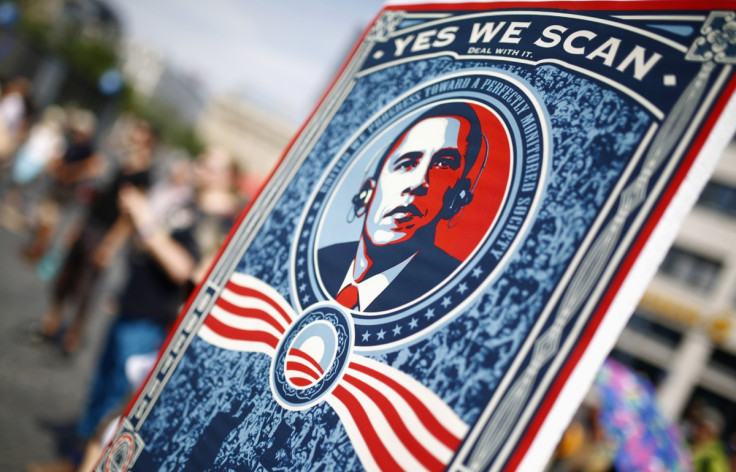White House Panel Calls For NSA Spying Reform
The National Security Agency (NSA) should halt the mass collection of citizens' phone records according to recommendations made in a report produced by a White House-appointed panel hoping to curb the eavesdropping agency's powers.

Gathered in the wake of the publishing of top secret documents by former NSA contractor Edward Snowden, the panel suggested the 'metadata' associated with phone calls - the numbers involved and the time and duration of call, but not the audio itself - should be held by telecommunications providers or a private third party.
In addition to this, the panel suggests the NSA must need an order from the Foreign Intelligence Surveillance Court (FISC) for each search of data.
Regarding the collection of metadata, Richard Clarke, one of the panel members and a former counterterrorism adviser to the White House, said: "We don't see the need for the government to be retaining that data."
Worth the sacrifice
Expressing skepticism as to whether the collection of metadata is helpful, the panel said: "The question is not whether granting the government authority [to collect metadata] makes us incrementally safer, but whether the additional safety is worth the sacrifice in terms of individual privacy, personal liberty and public trust."
The panel believes metadata collection has made "only a modest contribution to the nation's security," adding it has "generated relevant information in only a small number of cases," which may have helped prevent acts of terrorism.
It was also believed that, since the public outing by Snowden of the NSA's metadata collection programme, the practice is now likely to be less useful. The panel said: "There has been no instance in which NSA could say with confidence that the outcome would have been different without the telephony metadata programme.
"Moreover, now that the existence of the programme has been disclosed publicly, we suspect that it is likely to be less useful still."
Proposing some self-restraint on the NSA
In total, the panel proposed 46 recommendations of change to President Obama, who said earlier this month he would be "proposing some self-restraint on the NSA" in reforms the White House said will be announced in January. It remains to be seen how many, if any, of the panel's recommendations will be adopted.
While the panel remains convinced that the collection of phone call metadata should be more tightly regulated, NSA officials have defended its actions, saying it is essential to help identify potential terrorists.
NSA director Army General Keith Alexander told a Senate committee recently: "There is no other way that we know of to connect the dots. Given that the threat is growing, I believe that is an unacceptable risk to our country."
Justified by significant threats
In relation to the NSA's spying on foreign leaders - the Snowden documents revealed snooping on German Chancellor Angela Merkel and Brazilian President Dilma Rousseff - the panel said the US should determine whether such surveillance is justified by "significant threats" to national security.
The US must also determine if the nation being spied upon is one "whose leaders we should accord a high degree of respect and deference."
In addition, the panel suggested the US must determine whether there are other ways to obtain the necessary information without spying on foreign leaders, and to weigh up the negative effects if the surveillance were to become public knowledge.
In conclusion to the 300-page document, the panel accepts that, while "no nation treats citizens of other nations the same way that it treats its own people," it has "emphasised that numerous steps can and should be taken to protect the privacy and dignity of citizens of other nations."
The panel added that surveillance "should never be undertaken to promote illegitimate goals, such as the theft of trade secrets or the suppression of freedom of speech or religion...free nations must protect themselves, and nations that protect themselves must remain free."
© Copyright IBTimes 2024. All rights reserved.






